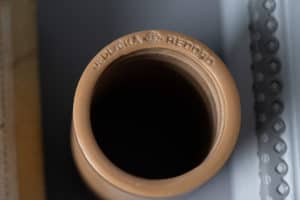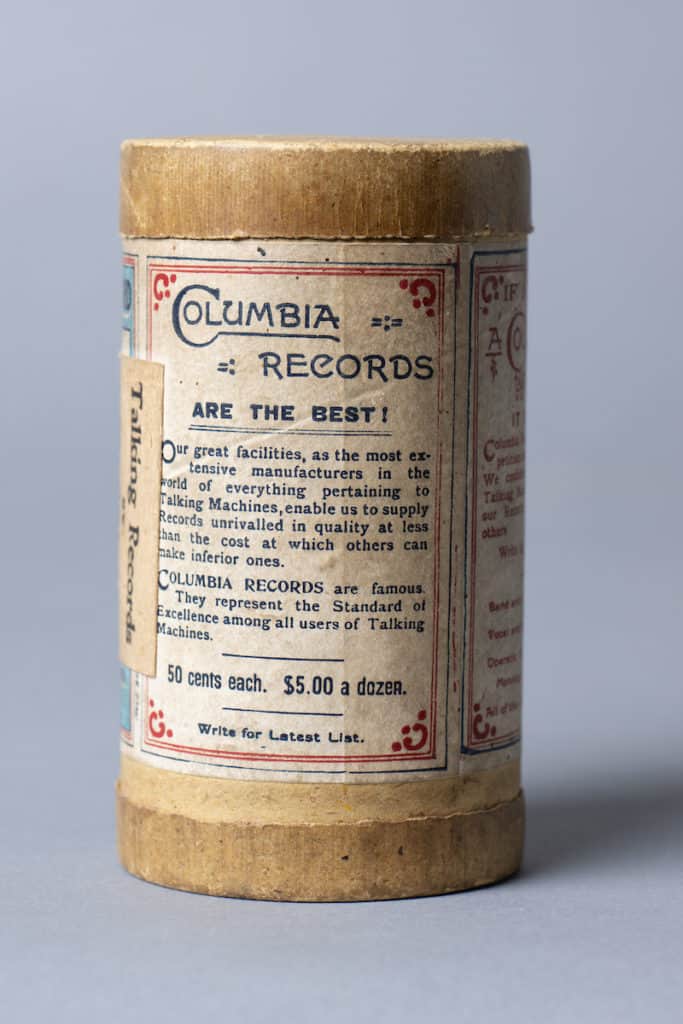A generous grant from the GRAMMY Museum® Grant Program will help the Rita Benton Music Library at the University of Iowa to digitize and preserve some of the earliest recordings of Czech music made on American soil.
The $11K award will assist with a project involving 173 wax and gold-moulded cylinder recordings of Czech music and recitations dating from 1903 to 1908. Cylinders were one of the earliest forms of sound technology and the first to allow for mass production and distribution of sound in recorded form. Katie Buehner, director of the Rita Benton Music Library, and Daniel Johnson, digital preservation librarian, are the project coordinators.
“We’re thrilled to receive this grant because it is very likely that many of the recordings have not been played or listened to in over 100 years and are at great risk of degradation and complete loss,” says Buehner, who submitted the grant proposal. “It will allow everyone to experience a slice of Czech Americans’ cultural life, and researchers will have the opportunity to study Bohemian transplantation in the actual voice of those who made the journey.”
In addition, this unexplored catalog of amateur and professional recordings will allow sound recording scholars to compare the practices of established labels with that of an independent, amateur producer. One hundred wax cylinders are from Eduard (Ed. on the cylinders) Jedlička—a jeweler who was one of the Czech sound-recording pioneers in the United States—and constitute some of the earliest recordings made for a specific ethnic group, including music, poetry, stories, and comedy. The 70 Columbia recordings are rare European issues of Czech music and comedy.
“The UI Libraries is committed to the long-term preservation and public access for these digitized wax cylinder recordings and all recordings in our care,” says John Culshaw, Jack B. King university librarian. “Katie and Daniel’s work on this project will further the impactful work already done to provide the ability to hear long-lost, rare audio created by and/or for Czech-American immigrants or Czech peoples.”
A separate aspect of the project will transcribe the Czech content and translate the text into English. It’s an effort that will be coordinated by Filip Šír, coordinator for digitization of audio documents for the National Museum in Prague, Czech Republic. Endpoint Audio Labs will do the media reformatting.
The unique partnership between Buehner and Šír is continuing to unearth this music and make it accessible to people all over the world. The oldest known Czech music recordings in the U.S. call the Rita Benton Music Library home, thanks to the generosity of two people with Iowa ties.
In 2018, Alan and Ann January donated 150 wax cylinders and a gramophone player to the library. Buehner has been digitizing the collection and found that at least 13 of those donated cylinders were one-of-a-kind early Czech music recordings made in the U.S. by Jedlička.
That’s what led to her connecting with Šír, who has been searching around the world for the lost recordings of early Czech sound recordings and the stories of the people behind them. Since then, Buehner and Šír connected with descendants of Jedlička, who donated the remaining stock from his store, an additional 173 cylinders, to the university. It is this collection that will be digitized with the grant funds.
To put things into perspective, the Library of Congress holds a collection of 47 Jedlička cylinders, but most are late in the production run (earliest held is no. 151). However, the January collection includes cylinder nos. 4, 6, 10, 29, 66, and 68, making them the earliest extant recordings of Czech music made on American soil. Until they can be digitized, the songs and stories on the cylinders remain to be heard. They were received without the original containers, and though some had catalog numbers, a precious few had titles.
You can listen to current recordings and also learn more about Rita Benton Music Library’s collection and Alan and Ann January via:
- Czech cylinders: gifts of culture and Iowa family history
- A library legacy: Meet Alan and Ann January
- National Museum searching for early Czech sound recordings in US,” Radio Prague International, Sept. 17, 2019


